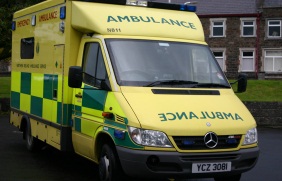7th May 2015
The Northern Ireland Ambulance Service was subject t o industrial action on 6 May in the form of withdrawal of labour by the UNITE Trade Union in addition to ongoing “working to contracted hours only” action by UNISON, GMB and NIPSA.
o industrial action on 6 May in the form of withdrawal of labour by the UNITE Trade Union in addition to ongoing “working to contracted hours only” action by UNISON, GMB and NIPSA.
The combination of both led to the Trust developing contingency plans with a specific emphasis on the action planned for 6 May and its potential impact.
The Trust cancelled planned non-urgent work to free up the available PCS and ICS crews to assist their colleagues in the emergency tier by playing a bigger role in hospital discharges.
Further contingencies involved the Trust making use of voluntary and private ambulance services to support A&E crews by undertaking work within their scope of practice.
From midnight on Tuesday to 08:00 on Wednesday the Trust operated with 40 of 52 planned NIAS crews. From 08:00 to 20:00 on Wednesday 44 of 61 crews were on duty and from 20:00 to 23:59 on Wednesday 39 of 52 crews were on duty.
In the 24 hour period NIAS responded to 441 emergency calls. 149 of these calls were Category A (life threatening calls). NIAS responded to 47% of Category A calls within 8 minutes against a performance target of 75% and a more recent performance of mid 50’s%.
The average response time for Category A calls was 12mins 11 secs.
NIAS Chief Executive, Liam McIvor said,
“6 May was a particularly challenging day for NIAS. I would like to express my thanks to all those who played a role in ensuring that whoever called for our help yesterday, got it. I would also like to acknowledge the professionalism of all involved in delivering our service. We see this dedication day-in and day-out but I am aware that many people went the extra mile, putting the best interests of the patient to the fore. To those who had to wait longer for an ambulance than they would have expected, I offer my apologies but am sure that, when our crews arrived, the care received was second to none.”
